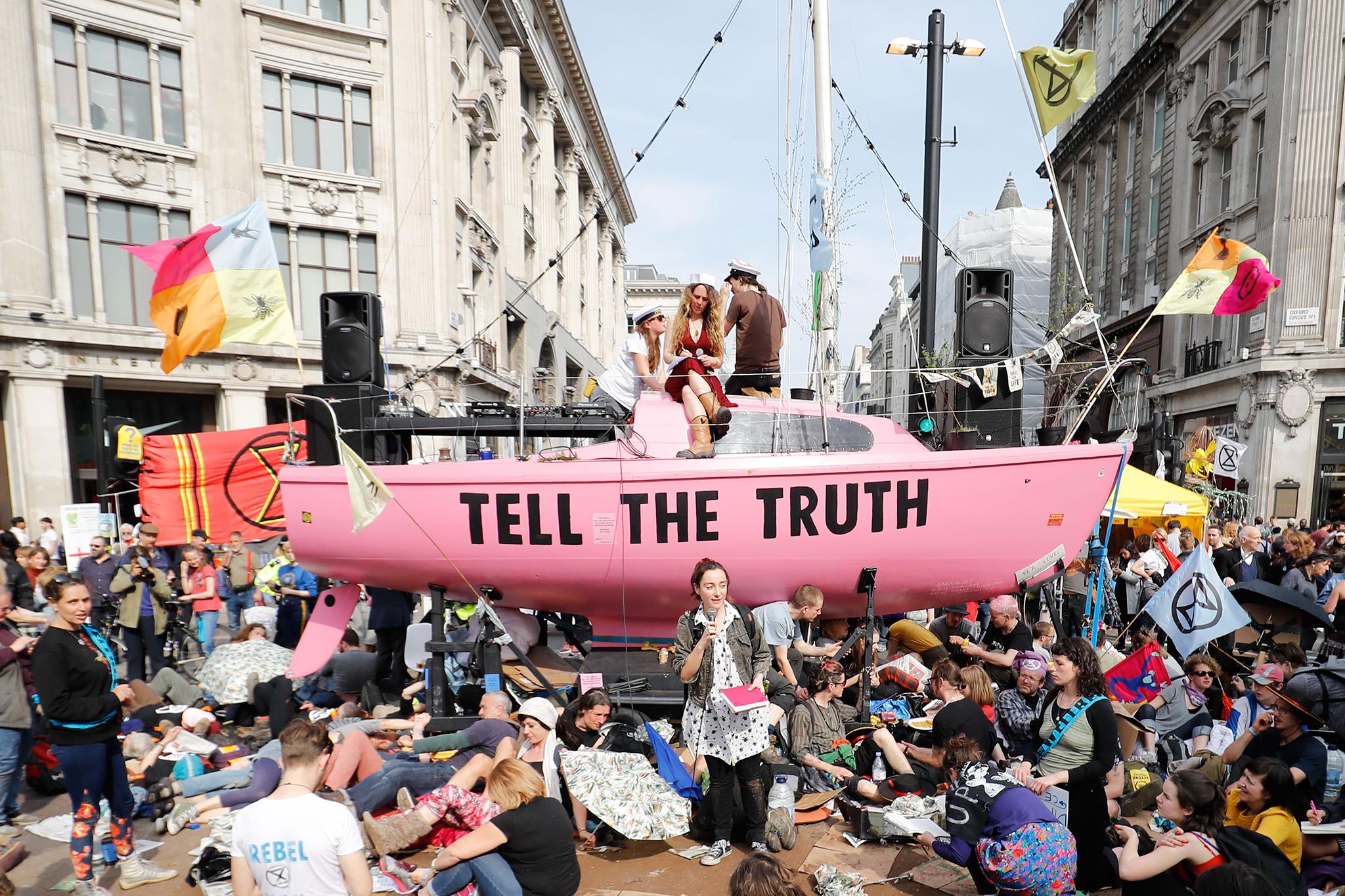Counter-terrorism police list Extinction Rebellion as extremist group
'How dare they? Children up and down the country are desperately fighting for a future,' say climate activists after inclusion in official report alongside banned Islamist and far-right groups

Extinction Rebellion have accused police of a "deliberate attempt to silence" them after the climate protest group was included on a list of extremist organisations in a counter-terrorism report.
Guidance issued by Counter Terrorism Policing South East (CTPSE) as part of its anti-radicalisation training warned vulnerable young people and adults might be encouraged by climate activists to “perform acts of violence” by climate activists.
Extinction Rebellion was included in the list alongside banned far-right and Islamist terror groups.
The group, which uses peaceful protest and non-violent disruption to campaign for urgent action to address the climate emergency, called their inclusion “astonishing” and a "terrorism slur".
It added in a statement: "How dare they? Children up and down the country are desperately fighting for a future.
"Teachers, grandparents, nurses have been trying their best with loving nonviolence to get politicians and big business to do something about the dire state of our planet. And this is how the establishment responds."
CTPSE, which co-ordinates police forces' counter-terrorism strategies in the South East, described the inclusion of Extinction Rebellion in the report as an "error of judgement" and said it would be reviewing the material.
The document, first reported on by The Guardian, warns those influenced by the group’s ideology may begin “speaking in strong or emotive terms about environmental issues like climate change, ecology, species extinction, fracking, airport expansion or pollution”.
It adds students “may neglect to attend school” in order to attend protests, as well as taking part “in planned school ‘walk outs’” – the latter a style of protest popularised by Swedish teenager Greta Thunberg.
In a section headed “Why are they a threat?” the guidance says “an anti-establishment philosophy that seeks system change underlies its activism,” adding that “while non-violent against persons, the campaign encourages other law breaking activities”.
It also says police forces should watch out for the group’s logo and associated slogans.
The same pamphlet includes advice on spotting signs of radicalisation from neo-nazi group National Action and Al Muhajiroun – an Islamist terror group with links to attacks including the 2019 London Bridge stabbing, the 2017 London Bridge attack and the 2013 murder of Lee Rigby.
The guidance makes up part of the Prevent programme – which trains and facilitates teachers, youth workers and others who work with young and vulnerable people in spotting and flagging up radicalisation. Critics have long held that the programme has a chilling effect on free speech and education.
Paul Stephens, an Extinction Rebellion activist who was previously at Metropolitan Police detective sergeant, said: “When are the police going to wake up? The climate and ecological emergency is the most serious threat to public safety in history and the longer this government fails to address it and continues to invest in fossil fuels, the greater the problem will be for the police.
“Who hasn’t criticised our system of government in recent years? Are we all extremists?
”I have never seen anyone in Extinction Rebellion encourage violence in any way to anyone. Quite the reverse. As a former police officer of 34 years experience, I seriously doubt the political independence of those who published this nonsense.”
According to The Guardian, the group featured in a version of the document that was issued in November. It has since been recalled and the group is not classed as extremist.
Detective Chief Superintendent Kath Barnes, head of CTPSE, said: “I would like to make it quite clear that we do not classify Extinction Rebellion as an extremist organisation.
“The inclusion of Extinction Rebellion in this document was an error of judgement and we will now be reviewing all of the contents as a result.
“It was produced by CTPSE to assist our statutory partners – including police forces and government organisations – in identifying people who may be vulnerable as a result of their links to some organisations.
“The document was designed for a very specific audience who understand the complexities of the safeguarding environment we work within and who have statutory duties under Prevent. We are in the process of confirming who it has been shared with and recalling it.
“We as Counter Terrorism Policing, along with our partners, have a responsibility to protect vulnerable people. Officers are trained to spot those who may be vulnerable, and the membership of an organisation that supports environmental or animal welfare issues alone would not be a trigger.”
Join our commenting forum
Join thought-provoking conversations, follow other Independent readers and see their replies
2Comments